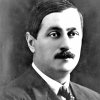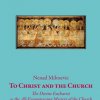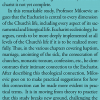Jovan Dučić
Jovan Dučić (Serbian Cyrillic: Јован Дучић, Serbo-Croatian pronunciation: [jǒʋan dûtʃitɕ]) (February 1871 – 7 April 1943) was a Herzegovinian Serb poet, writer and diplomat.
Jovan Dučić was born in Trebinje at the time part of Bosnia Vilayet within Ottoman Empire on 17 February (or 5 February according to the Julian calendar) 1871.












